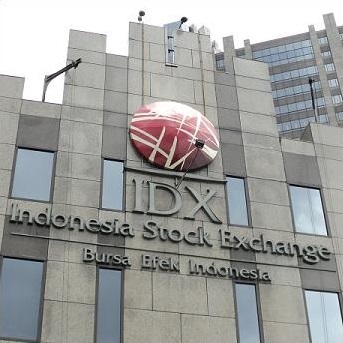Waspadalah terhadap penipu yang aktif di WA mengatasnamakan Indonesia Investments
15 April 2025 (closed)
Jakarta Composite Index (6,441.68) +73.17 +1.15%
How Did Indonesian Stocks & Rupiah Perform in the Past Week?
In line with the volatile performance of global stocks, led by indices on Wall Street, the benchmark stock index of Indonesia (Jakarta Composite Index, or abbreviated IHSG) showed a volatile performance over the past week. US stocks mostly declined - except for the sharp rebound on Wednesday after Federal Reserve minutes signalled no higher US interest rates anytime soon - on concerns about the global economy (particularly the Eurozone), looming higher US interest rates, and the appreciating US dollar (hurting US exports).

Wall Street usually has a major influence on Asian stock indices, including the Jakarta Composite Index, contributing to the latter’s 0.3 percentage point decline during the past five trading days to finish at 4,962.96 points on Friday (10/10).
Seeing great volatility on Wall Street over the past week, analysts have suggested that the steady upward movement of US stocks, which had been ongoing for three years, may be over. The last time such volatility was seen in August 2011 when Standard & Poor's downgraded the US' credit rating and caused the US stock market’s last ‘correction’ (which refers to the situation when stocks fall at least ten percent from a recent peak).
Global stock indices were down last week due to concerns about the global economy, particularly in Europe and Asia. Germany may fall in a recession after the country’s exports fell 5.8 percent in August 2014 (the largest monthly drop in five years). Being the Eurozone’s largest economy, a recession in Germany will drag down Europe. Earlier in the week, the International Monetary Fund (IMF) had cut its outlook for global economic growth in 2014 and 2015, citing weaknesses in Japan, Latin America and particularly Europe.
Currently, the market is also waiting for US corporate earnings reports. Many companies are expected to release financial figures next week.
Apart from the negative influence of foreign factors, Indonesia’s IHSG has also been affected by political uncertainties as defeated presidential candidate Prabowo Subianto has secured a majority (the Merah-Putih coalition) in the House of Representatives (DPR) and People’s Consultative Assembly (MPR). This Merah-Putih coalition, which consists of six political parties, is expected to oppose president-elect Joko Widodo’s reform agenda for the sake of opposition, and which comes at the expense of economic and social development of Indonesia. In the past weeks, this coalition managed to pass a bill that abolishes direct voting of regional leaders, and it secured the post of Speaker (including deputy speakers) in both the DPR and MPR.
The Indonesian rupiah exchange rate has also been affected by the aforementioned factors. As the outlook for the Eurozone is particularly worrisome, market participants sold euros and bought safe haven-currencies such as the US dollar and Japanese yen. As a result, emerging currencies, including the rupiah, depreciated over the past week. Moreover, further looming US monetary tightening implies a strengthening US dollar at the expense of the value of the rupiah and other currencies.
Bank Indonesia's benchmark rupiah rate (Jakarta Interbank Spot Dollar Rate, abbreviated JISDOR) depreciated 0.59 percent to IDR 12,207 per US dollar over the past week.
–
‹ Kembali ke Berita Bursa Efek
Bahas
Silakan login atau berlangganan untuk mengomentari kolom ini

